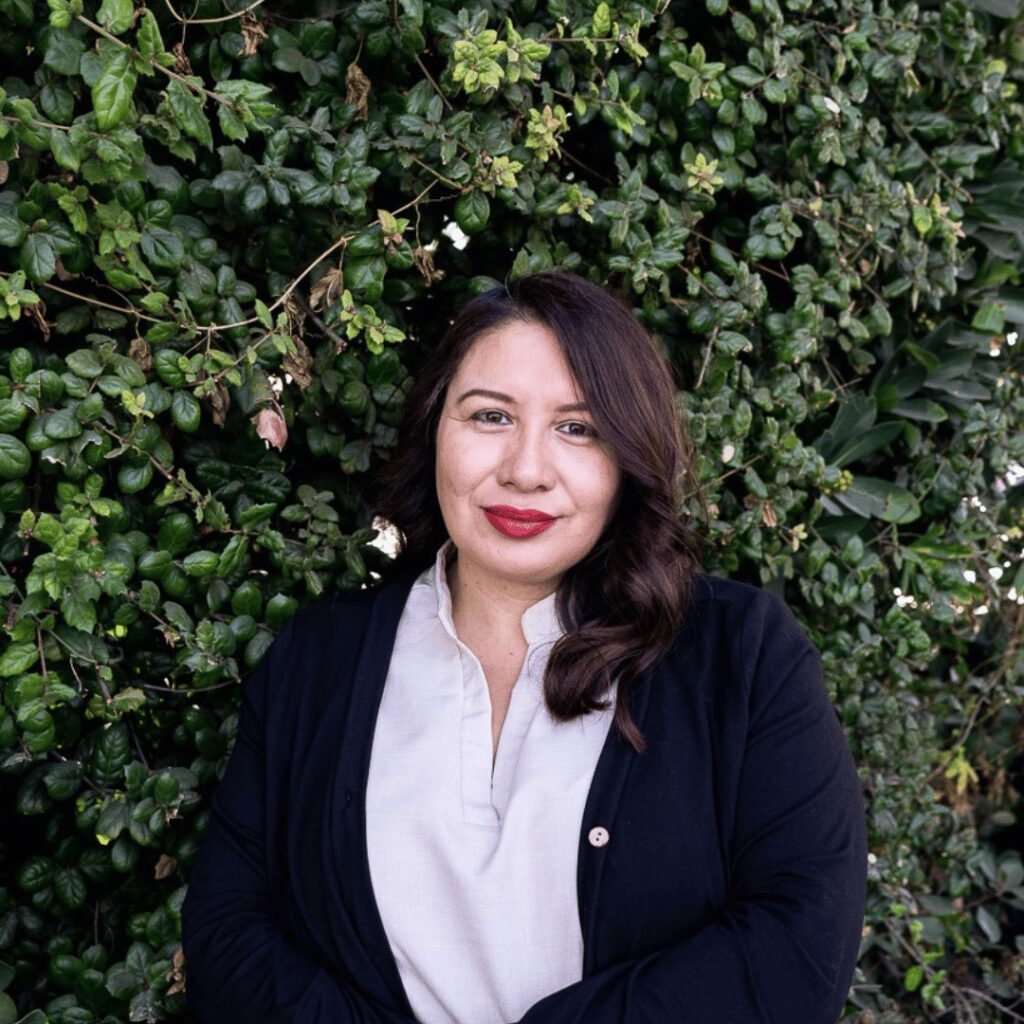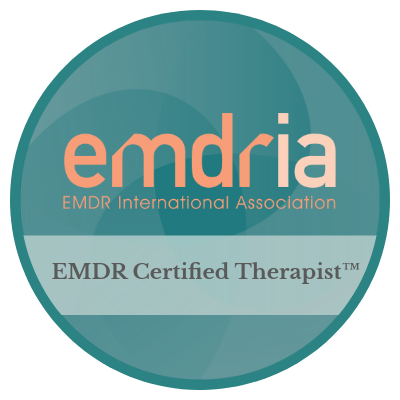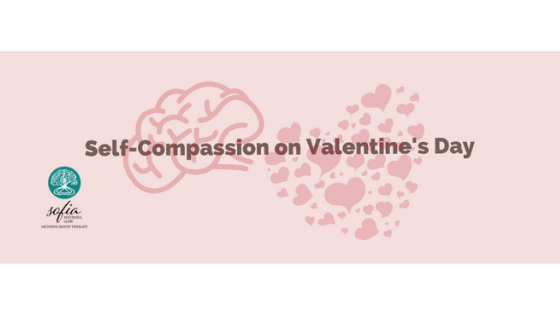
Self-compassion on Valentine’s Day (and everyday, multiple times a day) is going to be important for people who might have some pain associated with relationships and find themselves triggered on this day (pretty much everyone). While the commercialization of the day is widespread, we can’t help but see all messages about love, coupledom, and gifts galore. Which in and of itself, can be triggering. While this day is associatedwith intimate relationships (at least here in the U.S., in Latin America it’s deemed Day of Love and Friendship), I’d like to invite you all to examine the relationship with yourself and practice self-compassion on Valentine’s Day, regardless of your relationship status, plans for the day, and even beyond that. Self-Compassion expert, Dr. Kristin Neff defines self-compassion as encompassing three main parts: self-kindness, the commonality of suffering among all, and mindfulness of emotions without judgment (www.selfcompassion.org). Easy-pleasy, right?
Practicing self-compassion can be really hard especially for people who grew up hearing constant criticism about the things they do or about who they are. Self-compassion might also be hard for those who tend to use rigid thinking, aka black-and-white and all-or-nothing thinking. “Shoulding” on yourselves and others also makes it hard to practice compassion because there is frustrated judgment/expectations.
The way you do self-compassion is by: 1) acknowledge the suffering, which can sound like, “I’m feeling really lonely right now.” 2) Explore with value is being targeted, “connection/love is really important to me. I like being with people who love me and who I feel safe around.” 3) Be kind to yourself (Tip: ifthis is hard to do, think of what you would tell your 5 year old self who is feeling lonely). You can do this by engaging in healthy relationships (key: must be healthy and safe) or by nurturing the relationship with yourself by engaging in things you like to do, being creative, treating yourself with a healthy activity, listening to your body (rest, eat, sleep, exercise, stretch, take prescribed medications, etc.), 4) Lastly, connect with the commonality of suffering and how kind you’ve been to others. Then turn that compassion toward yourself: “Suffering is a normal part of life. If my best friend was suffering, I’d hold her and tell her, ‘I got you.'” Get you. Hold you. Be good to you. Say these nice things to yourself.
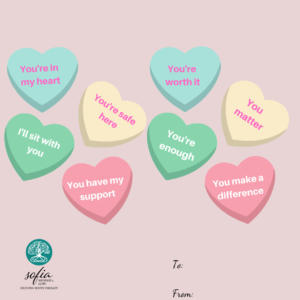
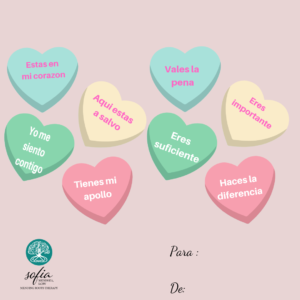
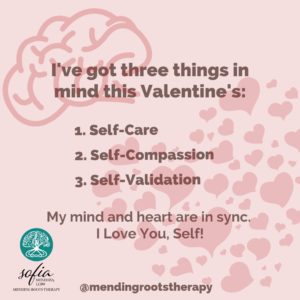
Self-care and self-validation are also crucial any time of the year. Self-care is when you do things that are simply good for you. Whether it’s saying no to others, feeding yourself, resting, taking a long bath, or prioritizing paying your bills, all those things are good for you. Self-validation is when you acknowledge your struggle for what it is and can link how feeling a certain way makes sense for you given your experience. It can sound like, “Yes, it makes sense to feel this.” It’s not praise, it’s more of telling yourself that your emotions are are true and they matter.
Want to get yourself or a loved one something wellness related? Check out these gift ideas (Disclosure: I am a part of the Amazon Affiliate Program where I earn a small commission from items purchased from these links. Which I in turn use, to buy new books to review and recommend):
- A weighted blanket which is said to help with sleep for people who suffer from anxiety disorders, sensory issues and many other sensitivities.
2. Gratitude journal
3. Passion Planner to help focus on goal setting.
4. Journal Focused on Affirming and Self-Care
5. “Read me when” Cards: I created these cards for people to use as coping cards or reminders for when times are tough and it’s hard to remember the balanced thoughts you came up with. They are wallet sized and on matted card stock paper. Sometimes it can make all the difference in coping. To order some, feel free to email me at info@sofiamendozalcsw.com. Mention this blog and get 20 for $10.

Want to listen to amazing podcasts that inspire healing, growth, creativity and self-love? Check out these that I’ve been personally obsessed with in the last month:
Hey, Girl by Alex Elle
The Art of Money by Bari Tessler
First Gen Journey by Dr. Elisa Hernandez
Latinx Therapy Podcast by Adriana Alejandra Alejandre, LMFT
Rad and Happy Podcast by Tara Nearents
In closing, I wish you all a great day whether you celebrate Valentine’s Day or not. I wish you all moments of peace from your suffering. Ultimately, I wish for you to find the right words and actions that contribute to your well-being.
For more updates on the blog, giveaways, and sources of inspiration, follow me on instagram at @mendingrootstherapy.

BIPOC Maternal Mental Health & The Mindful Mama Wellness Kit
By Sofia Mendoza, LCSW The Reality of Maternal Mental Health Maternal mental health affects us all—our communities, our families, and especially our mothers themselves. As

BIPOC Mental Health and Healing from Race-Based Workplace Stress
Being a BIPOC (Black, Indigenous, Person of Color) professional often means carrying invisible weight — the extra mental and emotional labor of navigating spaces that

Strategies for Alcohol Sobriety During Social Gatherings
As a therapist supporting many folks in their sobriety and recovery, I’ve witnessed the strength it takes to navigate these spaces. Your awareness in planning

Tolerating Letting Go
In this last month I’ve been giving a lot of though to the concept of letting go of what doesn’t belong to us. This can

Uncertainty, Fear and Regulation
In this moment of global uncertainty, it’s normal to feel overwhelmed. This post offers a gentle guide to navigating fear and anxiety, rooted in cultural wisdom and trauma-informed care. We’ll explore validating our emotions, accepting uncertainty, and practical ways to regulate our nervous system. I’m sharing a free “Coloring with Uncertainty” book in English and Spanish—because our healing is collective. Together, we can find strength in our cultural resilience and create moments of calm amid the storm.
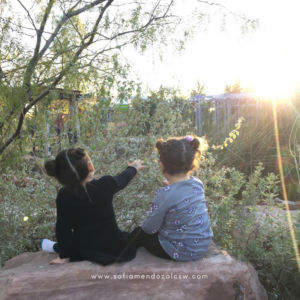
Mindfulness for Kids (and Parents)
In this post, we explore practical, culturally-affirming ways to bring mindfulness into your family’s daily routine. Discover how belly breathing, compassion practice, and even bubble-blowing can help regulate emotions and build resilience. I’m sharing my favorite bilingual resources, from “Sitting Still Like a Frog” to Sesame Street videos, porque our healing journey should reflect the richness of our cultures. Let’s explore how this ancient wisdom, rooted in many of our ancestral traditions, can help us and our little ones navigate life’s challenges with more ease and joy.

